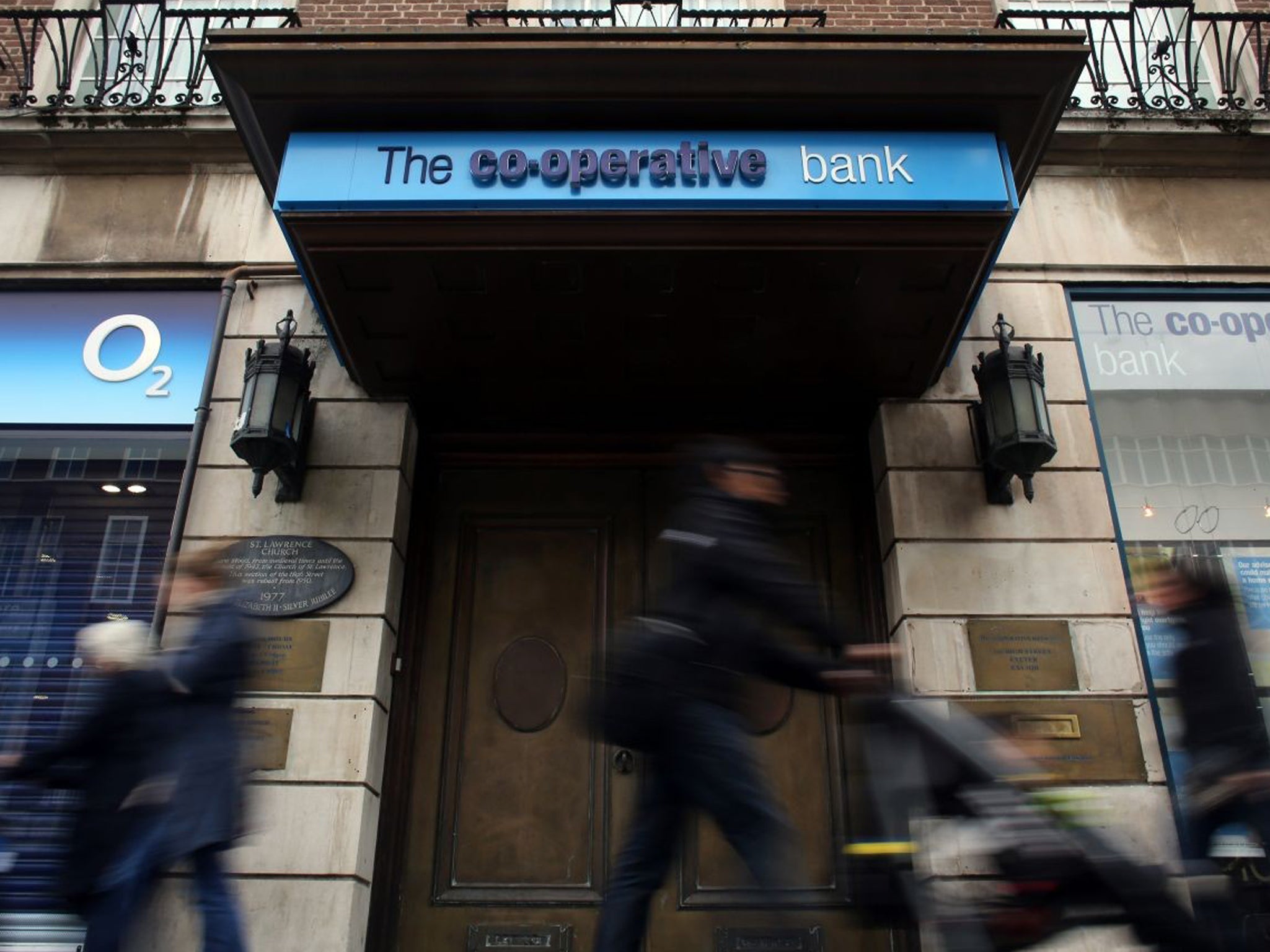Co-op Bank scraps bonus plan for bosses over fears of stress test failure

The Co-operative Bank has torn up this year’s long-term incentive plan for its senior executives amid expectations that it has failed stress tests mandated by the Bank of England.
The beleaguered bank’s chief executive, Niall Booker, this week confirmed widespread rumours that it was likely to fail the tests, which gauge a lender’s ability to survive a 35 per cent crash in house prices, combined with soaring unemployment and interest rates.
As a result, the Co-op Bank has cancelled both its general meeting, scheduled for next Wednesday, and the long-term bonus plan for 2014 known as an “L-tip”. It is set to look at fresh ways to hand money to Mr Booker and other members of his top team.
The company said the vote had been cancelled because the L-tip as it stood included “measures which may no longer be appropriate”– without saying what those measures were. It also confirmed that its remuneration committee was “considering appropriate alternatives”. A 2015 L-tip is still in the works and will be voted on as normal next year.
Mr Booker, a veteran of HSBC, joined the Co-op Bank in the summer of 2013, when it was reeling from a £1.5bn capital shortfall. He is paid an annual salary of £1.2m, plus £140,000 a month if the bank meets its minimum capital requirements. An additional deferred bonus scheme for Co-op Bank executives will go ahead as normal.
Sources close to the lender – which still does not know for certain that it has failed the stress tests because the results are not due until 16 December – said its business plan had been approved by financial watchdogs.
However, it is now likely to hasten its attempt to dispose of £6bn of former Britannia Building Society mortgages, in a portfolio known as Optimum, which have been classed as non-core assets. They are largely sub-prime and require self-certification of incomes. The bank thinks it may be able to get close to their par value as a result of improvements in the mortgage market, although its effective status as a forced seller are unlikely to help with negotiations.
“The bank is considering whether modifications to the timing and strategies for the run-down of non-core assets, which are particularly exposed to stress, would be appropriate,” a spokesman said.
“Given positive developments in market pricing, it may now be possible to exit certain additional portfolios which are particularly susceptible to stress.”
The Co-operative Group ceded control of the Co-op Bank to hedge funds last year in the midst of a capital crisis. The mutual’s holding fell to 20 per cent from 30 per cent earlier this year following another capital raising.
Subscribe to Independent Premium to bookmark this article
Want to bookmark your favourite articles and stories to read or reference later? Start your Independent Premium subscription today.

Join our commenting forum
Join thought-provoking conversations, follow other Independent readers and see their replies